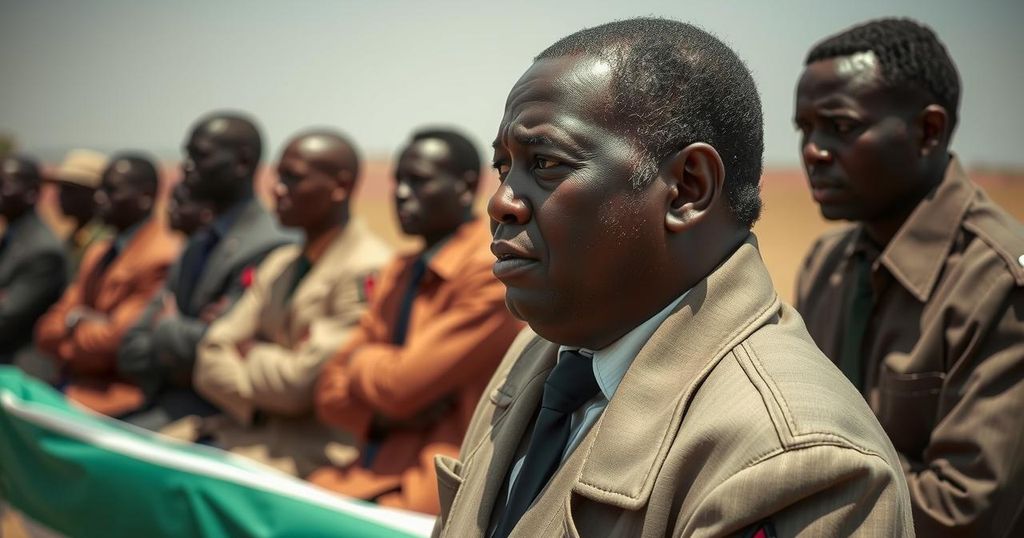UN Commission Highlights Impunity and Violence in South Sudan

The UN Commission on Human Rights in South Sudan released a 19-minute video report recounting the persistent violence and human rights violations since the outbreak of civil war in 2013. It emphasizes the urgent need for accountability and a holistic transitional justice approach to heal the trauma and restore trust in society.
On Sunday, the UN Commission on Human Rights in South Sudan unveiled a compelling 19-minute video report that underscores the ongoing violence and persistent human rights violations in the country, resulting from widespread impunity. The report, titled “The Unrelenting Cycle of Violence in South Sudan,” serves as a stark reminder of the suffering endured by civilians since the civil war erupted in mid-December 2013. It highlights personal accounts from victims, illustrating the profound trauma and devastation inflicted by the conflict, which has fractured communities and devastated the social fabric of South Sudanese society.
The Commission’s statement emphasizes the urgent need for a comprehensive transitional justice framework, incorporating elements such as criminal accountability, truth-telling mechanisms, reparations, and extensive institutional reforms. This holistic approach is vital for breaking the cycle of violence and violations that have persisted in South Sudan. The Commission accentuates the importance of rebuilding trust within communities, particularly among those who have faced targeted violence.
Yasmin Sooka, Chair of the Commission, expresses concern over the entrenched nature of violence, stating, “It is devastating to witness how entrenched and cyclical the violence has become due to the failure to hold perpetrators accountable… The demand from South Sudanese civilians is clear: they want justice and reparations.” She highlights that the lack of accountability has created an environment where heinous crimes are committed without fear of repercussions.
Despite past peace agreements, political violence, ethnic conflict, and widespread predation continue to plague the nation, indicating that without transformative measures, the cycle of suffering will persist. Commissioner Barney Afako reiterated that thousands of South Sudanese live in fear, while those instigating violence remain in power. He urged the implementation of legal frameworks to establish the Commission for Truth, Reconciliation, and Healing, alongside the Compensation and Reparation Authority.
Furthermore, Commissioner Carlos Castresana Fernandez remarked on the immeasurable human cost of the conflict, asserting that the absence of accountability is a significant barrier to achieving peace. He emphasized that “the situation will not improve until there is a robust, independent national system of justice” capable of addressing the violations against the South Sudanese populace.
The Commission’s findings underscore that the socio-political landscape remains fraught with challenges, necessitating a concerted effort from national leaders to protect citizens and foster a culture of accountability. As the anniversary of the civil war looms, the Commission calls for urgent action to confront these issues and initiate a path toward peace and reconciliation for the people of South Sudan.
The civil war in South Sudan, which began in December 2013, has resulted in catastrophic consequences for the civilian population, including widespread violence, human rights abuses, and a breakdown of societal structures. Numerous peace agreements have failed to stem the tide of violence, leading to a pervasive climate of impunity. The UN Commission on Human Rights has been actively documenting these violations, providing a platform for victims’ voices, and advocating for comprehensive transitional justice to address the root causes of the conflict and restore accountability.
In summary, the UN Commission’s recent video report poignantly illustrates the ongoing challenges faced by South Sudan due to rampant violence and human rights violations. It highlights the critical need for accountability and a structured transitional justice framework to pave the way towards lasting peace. As South Sudan continues to grapple with the legacies of conflict, the call for justice and reparations from its citizens remains urgent and essential to achieving reconciliation and rebuilding the country’s social fabric.
Original Source: www.radiotamazuj.org








